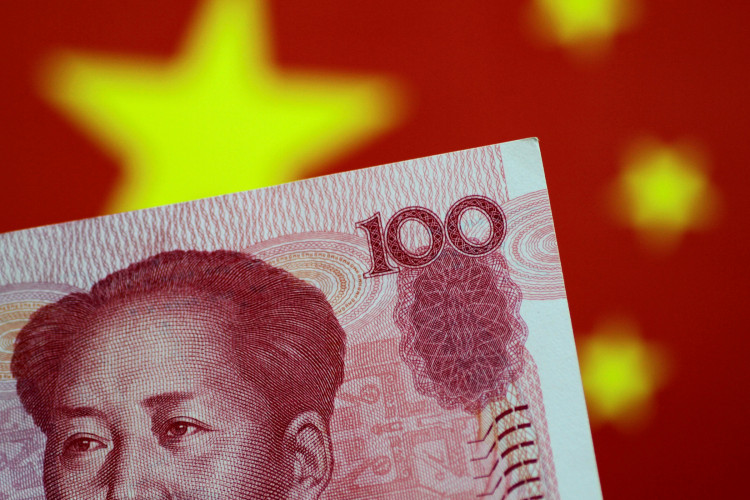China's central bank rolled out two major funding schemes on Friday, injecting as much as 800 billion yuan ($112 billion) into the stock market through newly-created monetary policy tools aimed at stabilizing capital markets. The People's Bank of China (PBOC) unveiled operational details of these swap and relending schemes, which were initially announced in late September, in an effort to provide liquidity and support the "steady development" of capital markets.
The Shanghai Composite Index reacted positively, reversing early losses to end the session with a sharp 4% gain, signaling renewed investor confidence. "The shoes finally dropped," said veteran investor Wen Hao, referring to the long-awaited implementation of the measures. "I expect many companies will tap the new facilities to buy shares, adding fuel to a bull market which has just started," Wen added.
Under the new swap scheme, initially valued at 500 billion yuan, brokerages, asset managers, and insurers will be able to obtain liquidity from the central bank by collateralizing assets to purchase stocks. So far, 20 financial institutions have been approved to participate in the scheme, with initial applications exceeding 200 billion yuan. Approved participants include China International Capital Corp (CICC), Citic Securities, China Asset Management Co, and E Fund Management Co, according to China's securities regulator.
Xinhua Financial described the swap scheme as a "market stabilizer," noting that its effectiveness will depend on market conditions. The demand for the tool is expected to increase during market downturns, while interest may decline during periods of recovery. The facility allows participants to access liquidity without having to sell shares in a panic-driven environment, potentially mitigating the negative impacts of stock market routs. "If implemented effectively, these new policy efforts could bring incremental funds into the market and enhance shareholder returns, thereby driving valuation rerating," BNP Paribas noted in a client memo.
The central bank also launched a relending program worth 300 billion yuan, aimed at allowing financial institutions to borrow funds from the PBOC to finance share buybacks by listed companies or their major shareholders. The one-year interest rate for relending is set at 1.75%, and 21 financial institutions, including policy and commercial banks, are eligible to apply for the loans at the start of each quarter. Listed companies can then borrow from these banks at interest rates of up to 2.25% to fund share purchases.
This move marks an exception to existing regulations prohibiting bank lending from flowing into the stock market. It is expected that more companies will use these cheaper loans to buy back their own shares, according to Wen Hao, who anticipates an uptick in such activities in the coming weeks.
The funding schemes come at a time when China's stock market has been struggling to maintain momentum following a historic rally earlier this year. Euphoria over stimulus measures initially announced in September had gradually subsided, replaced by caution as investors awaited concrete action from the government. The CSI 300 Index, which tracks the largest companies listed on the Shanghai and Shenzhen exchanges, rebounded 3.6% on Friday after a three-day decline, with tech shares leading the gains.
The measures were introduced against a backdrop of broader economic challenges, including a property market slowdown and weaker-than-expected GDP growth. Data released on Friday showed that China's economy expanded at a slower pace in the third quarter, heightening concerns that Beijing may need to expedite the implementation of its stimulus to achieve its annual growth target. New home prices also fell for the 16th consecutive month, signaling continued trouble in the real estate sector.
President Xi Jinping's recent remarks on prioritizing technology development added to the optimism. "Xi's remarks on tech have been the perfect trigger for a rebound that many had been waiting on the sidelines for," said Xu Dawei, a fund manager at Jintong Private Fund Management in Beijing. Semiconductor stocks such as Semiconductor Manufacturing International Corp and Cambricon Technologies Corp surged by as much as 20% on the news.
Still, some market analysts have expressed concerns that the recent gains driven by central bank measures may be short-lived unless accompanied by more aggressive fiscal policies. "The gains driven by the central bank measures, however, will likely be capped unless met by an equally strong expansion in fiscal spending," said Chunai Jean, senior strategist at Daiwa Asset Management. "Authorities have repeatedly disappointed investors with piecemeal steps after the surprise stimulus blitz unveiled by the central bank in late September."
Xin-Yao Ng, an investment manager of Asian equities at abrdn plc, added that the broader market rally might be more attributable to the PBOC's liquidity measures than to Xi's comments. "I see more clearly a stance toward reducing downside risk for the economy, including asset prices, but still lacking commitment to reflate the economy," Ng said.






